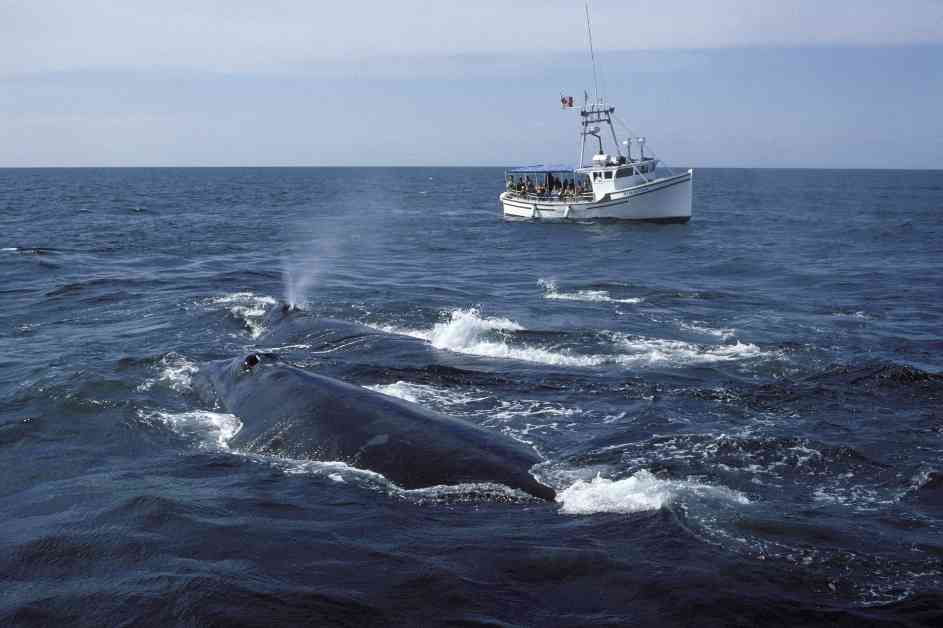NOAA Withdraws Proposal to Expand Speed Limit Zones for Endangered Whales
In a recent turn of events, the National Oceanic and Atmospheric Administration (NOAA) has made a significant decision regarding the protection of endangered North Atlantic right whales. Last week, NOAA withdrew a proposed set of rules that aimed to expand existing vessel speed restrictions in certain waters along the U.S. Eastern Seaboard at critical times when the whales forage, mate, and migrate each year.
Boat Collisions: A Threat to Right Whale Populations
The decision to withdraw the proposal comes in the wake of data highlighting the devastating impact of boat collisions on right whale populations. These collisions represent one of the leading causes of death for these majestic creatures, alongside entanglements with fishing gear. With only approximately 370 North Atlantic right whales remaining, the need for effective conservation measures is more pressing than ever.
Industry Backlash and Environmental Concerns
The proposed rules faced opposition from various stakeholders, including boaters, fishers, and the shipping industry, who expressed concerns that the changes could hinder their businesses. However, environmental groups such as Oceana and the Center for Biological Diversity decried the withdrawal, emphasizing the importance of protecting the endangered species through proven measures like speed restrictions.
Expert Perspectives on Conservation Efforts
Experts in the field, including Jessica Redfern from the New England Aquarium’s Anderson Cabot Center for Ocean Life, have emphasized the critical role of conservation efforts in ensuring the survival of right whales. While the Biden administration has allocated funds to advance technologies for whale detection and reduce vessel strikes, the effectiveness of these tools remains a subject of debate within the scientific community.
Climate Change and Conservation Challenges
In addition to human-induced threats, climate change poses a significant challenge to right whale conservation efforts. Warming ocean waters are altering the distribution of the whales’ main diet, pushing them into new areas at different times of the year. Efforts to protect these magnificent creatures require a multi-faceted approach that considers both immediate threats and long-term environmental changes.
Hope for the Future
Despite the challenges facing North Atlantic right whales, scientists remain optimistic about the possibility of their recovery. Effective conservation measures, combined with public awareness and support, can pave the way for these iconic marine mammals to thrive once again. By working together to address the various threats they face, we can ensure that future generations have the opportunity to witness the beauty and grace of these endangered whales in their natural habitat.














